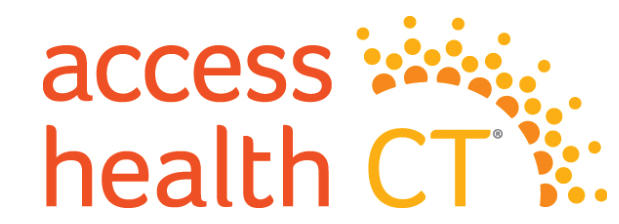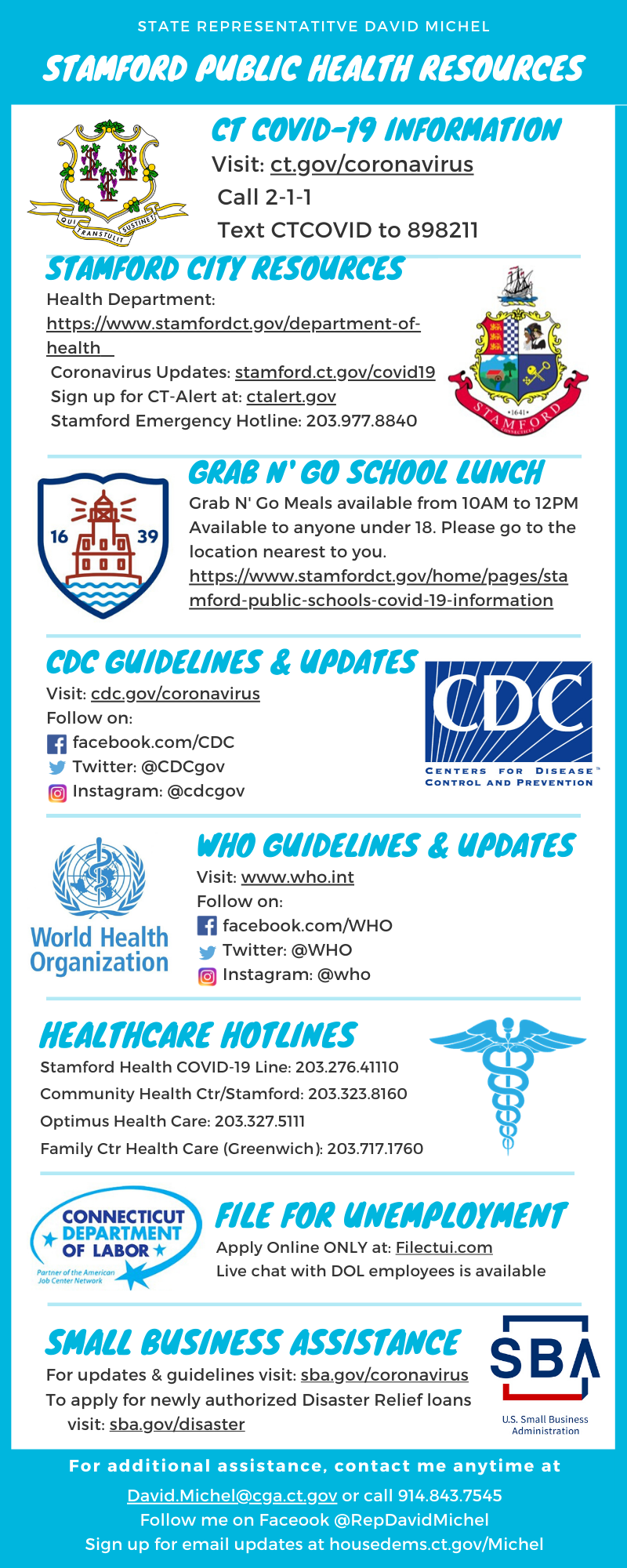COVID-19-Related Updates
March 19, 2020Access Health CT is urging uninsured residents to take advantage of a two-week, New Special Enrollment period that has begun and ends April 2!
Some highlights:
- Uninsured individuals can sign up for health insurance coverage through Access Health CT during the NEW Special Enrollment Period starting today and ending Thursday, April 2, 2020.
- The effective date of coverage for all enrollments during the NEW Special Enrollment Period will be April 1, 2020.
- The only way to sign up for this NEW Special Enrollment Period is by calling 855-365-2428.
The full press release from Access Health is below:
“The New Special Enrollment Period is only available for two weeks,” said Chief Executive Officer at Access Health CT, James Michel. “If you are uninsured, or you know someone who is uninsured, please call us. We can help you get a health insurance plan that is right for you and your family.”
Connecticut residents must be uninsured, lawfully present in the United States and not incarcerated. The coverage for those who enroll during this New Special Enrollment Period will start on April 1, 2020. The only way to sign up is by phone: 855-805-4325 (TTY: 1- 855-365-2428). The call center is open Monday – Friday from 8 a.m. to 5 p.m. Customers are advised to take action as soon as possible as wait times may be long to accommodate high call volumes.
Other information about this New Special Enrollment Period is available at Learn.AccessHealthCT.com.
Access Health CT reminds residents of the importance of maintaining their coverage throughout the year, and not just during this public health crisis. It is critical that uninsured individuals take advantage of this opportunity to protect themselves financially and ensure they have access to necessary services.

The Connecticut Fair Housing Center is producing daily reports of ongoing issues related to the Covid-19 public health care crisis. Take a look:
ADDRESSING CLIENTS’ NEEDS DURING
THE COVID-19 PANDEMIC
March 18, 2020
- Foreclosures: HUD announced that it was directing all lenders and servicers which service FHA-backed mortgages to suspend foreclosures and evictions for at least 60 days. You can read the guidance here. The moratorium on foreclosures applies only to mortgages on single-family homes with FHA or HUD mortgages. The moratorium on evictions applies only to homeowners or former homeowners, not to tenants living in a foreclosed property.
- Foreclosures: Fannie Mae and Freddie Mac suspended foreclosure sales and evictions of borrowers for 60 days. You can read Fannie Mae’s announcement here and Freddie Mac’s announcement here. There does not appear to be a moratorium on the start of foreclosure actions or evictions of tenants.
- Foreclosures: CHFA is sending a directive to all of the mortgage companies and banks that service its mortgages to put a stay on all evictions of homeowners who lost their homes to foreclosure.
- Evictions: The widely reported halt of evictions announced by HUD does NOT protect residential tenants from eviction.
- Outreach: Staff centralized COVID-19 fair housing communications and translated fair housing protections related to the public health crisis into 7 different languages. Found here
- Outreach: Staff distributed daily housing update to over 300 advocates, and the entire Connecticut General Assembly. If you want this daily update delivered to your inbox, click here.
- Outreach: Staff worked on a collective action strategy with CWEALF, ACLU, and many other organizations to address the needs of underserved populations in Connecticut.
- People who are homeless: Shelter guidance from the Department of Housing instructs shelters to remain open.
- People who are homeless: Rapid Rehousing funds are prioritized for elderly individuals.
What has NOT happened:
- No moratorium on the filing of new eviction and foreclosure actions.
- No moratorium on the filing of new requests for execution or default motions against people facing eviction or foreclosure.
- No moratorium on the postponement of imminent law days in foreclosure actions.
- No moratorium on the imposition of late fees or costs when a tenant is late paying the rent.
- No moratorium on the imposition of late fees or costs when a homeowner is late making a mortgage payment.
- Housing authorities are have not said how they will handle extensions of time on housing choice vouchers, the need for inspections of new units, or staying notices of voucher terminations.
- People continue to live in substandard conditions and cannot get assistance in moving out even though the conditions are harming them and their families.
- Many closing dates for people buying homes have been postponed or canceled because town clerk’s offices are closed or open only limited hours. Title insurers have made arrangements to provide “gap” coverage for these circumstances.
What we are learning from our clients
- Housing providers are complaining that children at home are too noisy and we anticipate an increase in discrimination complaints from families with children.
- Housing Quality Standard inspections that permit voucher holders to enter new housing opportunities are delayed.
- Individuals are still being denied housing because of their criminal record even for very minor and old offenses.
- Increases in subsidized rental payments are continuing.
- Tenants are being harassed by other tenants because of their race and national origin.
- Law days which result in a homeowner losing title to their homes continue to “pass.” In fact, one court clerk’s office told people on Monday that their Tuesday law day would be extended automatically because of all the recent announcements. It was not, and the homeowner lost their home on Wednesday.
- State-regulated (including state-chartered) mortgage companies needlessly apply for executions of ejectment in disregard of actions taken by the courts.
- Landlords continue to issue Notices to Quit and start eviction actions.
- People continue to lose jobs and income as bars, restaurants, hairdressers, etc. close.
Get Help
- Contact your mortgage company about getting a forbearance on your mortgage if you have been laid off or lost income hours. Click here to find out more and to find out if you have a Fannie Mae mortgage or here to find out more and to find out if you have a Freddie Mac mortgage.
- Call the Center if you think you have been the victim of housing discrimination. Telephone: 860-247-4400; toll free: 888-246-4401; email: info@ctfairhousing.org.
FOR MORE INFORMATION ABOUT YOUR FAIR HOUSING RIGHTS IN ENGLISH, SPANISH, MANDARIN, FARSI, RUSSIAN, ITALIAN, KREYOL, AND ARABIC, CLICK HERE
The Lamont administration has put together a fact sheet on the state’s response to COVID-19 that provides guidance for constituent concerns. Click here to see the FAQ Sheet.
The sheet will be updated regularly, and is available on the state's coronavirus website. Click here to visit the Connecticut Coronavirus website.
The U.S. House of Representatives and Senate have passed the "Families First Coronavirus Response Act" You can find a summary of H.R. 6201 here.
Lastly, a list of public health resources available for Stamford residents.






